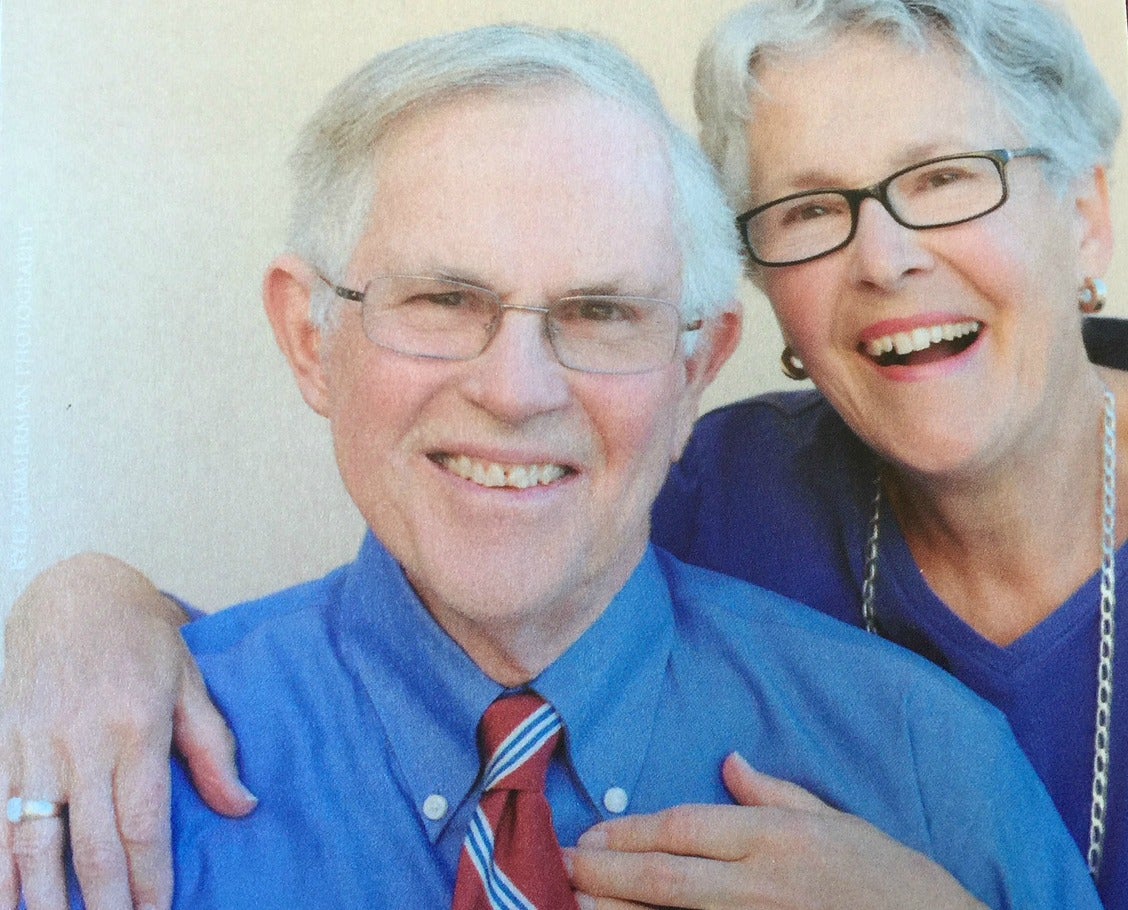
Dr. William Cole, 77, has played bass clarinet throughout his life since high school. The retired family medicine physician joined a local band in Albuquerque, playing more regularly over the last two years than he was able to during his 34-year career practicing medicine in Juneau, AK. It was just one of the perks of retiring to New Mexico five years ago – the biggest perk being close to his daughter and three grandchildren. Retirement seemed to be treating him well in the warmth of an unseasonably mild winter, until one Thursday morning in February. “I was minding my own business, when I suddenly woke up with a fever and confusion that morning,” Dr. Cole recalls. His wife, Lynette, witnessed her husband quickly lose his cognitive function and speech as he was rushed to the Emergency Department at the Heart Hospital of New Mexico at Lovelace Medical Center. “She was quite frightened. We didn’t know if I was having a stroke or what was going on.”
An MRI revealed what appeared to be a large mass on Dr. Cole’s brain. “It could have been a brain tumor,” Dr. Cole explains. Neurosurgeons examined scans of Dr. Cole’s brain looking for markers of a brain tumor, while culture testing was conducted to determine if there was a possible infection in his brain. Aside from feeling flushed in his face at night over the last few weeks, Dr. Cole says this all came on unexpectedly. “It was out of the blue. That was my only symptom. There was never any indication that I was losing brain function.”
Doctors diagnosed Dr. Cole with a brain abscess resulting from an infection that had traveled up to his brain from another part of his body. Since receiving a liver transplant in 1993 after battling hepatitis C, Dr. Cole was more susceptible to getting infections. However, he had never experienced anything like this.
To treat the infection, doctors worked quickly to administer antibiotic medication and determined surgery would be needed to keep the infection from spreading. Dr. Cole was transferred to Lovelace Medical Center’s Intensive Care Unit. His condition worsened as years of long-term memory appeared to be erased within days. “I can’t tell you anything about those three days prior to surgery,” he says. “The day of surgery, I didn’t even know my name.”
Surgeons performed a craniotomy to temporarily remove part of the bone from Dr. Cole’s skull to access the infected area of his brain. As soon as the infection was removed, something remarkable happened. “I could speak and knew my name,” Dr. Cole recalls. “We have video of me talking. It was amazing. I have memory and mental function from that time on.”
Not only had Dr. Cole made it through surgery, Lynette could also see her husband returning back himself. “She was extremely relieved,” he says. It was clear, however, a full recovery would be a slow process. “I was extremely weak and unsteady. The medications I have taken for 23 years for hepatitis C, I couldn’t even remember their names. It was frustrating. I didn’t let that overwhelm me, because with the support of my wife and family, as a doctor knowing what this was, I was happy to have survived.”
Dr. Cole was transferred from Lovelace Medical Center to Lovelace Rehabilitation Hospital to begin intensive therapy to regain what the infection in his brain had taken away. From cognitive therapy, to physical therapy and occupational therapy, trained staff worked with Dr. Cole several hours each day. “They jumped right on that right away,” he says. The first-time rehabilitation patient saw his treatment through the lens of a physician. “I can’t say enough good things about the care in all areas at Lovelace Rehabilitation Hospital. I am a doctor after all and I tend to know what good care is and what not good care is. I was treated in excellent fashion.” In addition to receiving therapeutic instruction, Dr. Cole says his therapists were “understanding, cheerful, encouraging and helpful.”
After two weeks at Lovelace Rehabilitation Hospital, Dr. Cole was strong enough to return home, where he continues to work on rebuilding his cognitive skills, especially speech and memory. “They told me I may not be good with numbers,” he says. “When I came home, I didn’t know multiplication tables anymore. I couldn’t visualize numbers.” Knowing multiplication tables used to come with as much ease as recalling the notes of a song, which Dr. Cole admits is difficult to face each time he plays the bass clarinet. That isn’t stopping him from practicing, however. “The notes don’t come to me quickly enough to play with the band, but I’m still working on it.”




